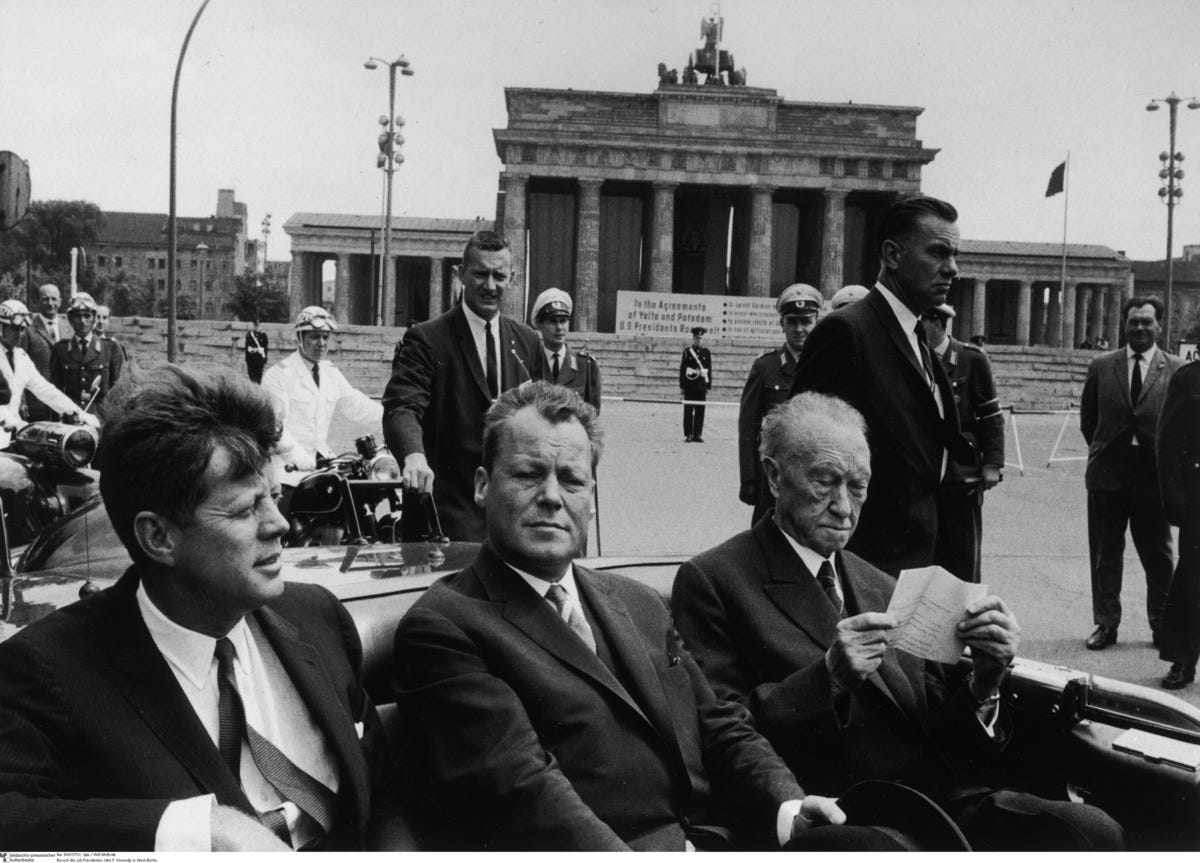Why the German Elections Really Matter
Germany’s election highlights a growing transatlantic divide, as U.S. policies push its long-time ally toward European independence—shaking the foundations of postwar democracy and global stability.
By Jeremi Suri
German democracy survived the country’s recent elections. Despite extensive propaganda from a right-wing party, the Alternative for Germany (AfD), and numerous outside meddlers, including Elon Musk, more than sixty percent of Germans voted for parties firmly anchored in democratic rules and processes. The AfD came in second in the election with about twenty percent of the vote, but this was a lower total than its supporters expected.
The most traditional party associated with postwar German democracy, the Christian Democratic Union (CDU), came in first with more than twenty-eight percent of the vote. The CDU will likely form a government with the Social Democratic Party, which leads the current government. Right-wing German politicians will have no role in running their country. That is very good news.
What stands out in the election is the rapid severing of close, historic ties between Germany and the United States. After the Second World War, Americans and Germans worked closely together to build a thriving democracy in place of dictatorship. The United States funded the reconstruction of the German economy in the West, helped draft a new German constitution, and reformed German education to emphasize democracy and peacemaking. Eventually, the United States supported the creation of a new German military, the Bundeswehr, firmly anchored to a Western alliance of democracies through the North Atlantic Treaty Organization (NATO).
The Eastern parts of Germany remained under Soviet control for almost forty-five years, but they dramatically merged into the American-supported German republic in 1989. This was the great success story at the end of the Cold War. American-German partnership brought down the Berlin Wall and replaced it with a prosperous, peaceful, free Europe. American-German partnership was a cornerstone for transatlantic economic and military cooperation. The two countries made each other richer and safer.
The electoral victory of democracy in Germany this time came despite recent destructive American actions. President Donald Trump has burned seventy years of transatlantic achievement in just four weeks. Unlike any of its predecessors, the current administration publicly advocated for right-wing, Nazi-influenced groups. Vice President J.D. Vance traveled to Munich to hector his German counterparts for denying anti-democratic voices more say. Elon Musk joined various AfD meetings virtually to express his support for the party. He dismissed concerns about Nazi rhetoric as “frankly too much of a focus on past guilt…we need to move beyond that."
Most shocking, President Trump has begun negotiations with Russian President Vladimir Putin on the future of Ukraine, and Europe as a whole, without including the Ukrainians, the Germans, or any other European state. Trump has promised to end the war in Ukraine on favorable terms for Russia, giving Putin a very powerful position in the heart of the continent with little American defense for German economic and security needs. Without exaggeration, the American president is selling out Germany and other long-standing allies to curry favor with Russia’s militaristic tyrant. This is an abject rejection of the American-German partnership and everything it has meant.
Germans voted to defend themselves against this treacherous turn in U.S. foreign policy. Friedrich Merz, the leader of the CDU and Germany’s next chancellor, made this clear. "I have absolutely no illusions about what is happening from America," Merz explained. "Just look at the recent interventions in the German election campaign by Mr. Elon Musk — that is a unique event. The interventions from Washington were no less dramatic and drastic and ultimately outrageous than the interventions we have seen from Moscow. We are under such massive pressure from two sides that my absolute priority now really is to create unity in Europe."

The new German leader sees the United States as an ally of Russia and an adversary of his own democracy. “My absolute priority,” Merz pledged, “will be to strengthen Europe as quickly as possible so that, step by step, we can really achieve independence from the USA.”
These are words that no democratic German leader has spoken since the Second World War. Instead of viewing the United States as a resource for democracy, Germans perceive the United States as a threat to democracy – “massive pressure from two sides,” Russia and the U.S.!
Perversely, American threats to democracy and independence in Europe push German leaders to become more nationalist, assertive, and committed to military autonomy. That is not good for Europe or the United States. The continent has remained peaceful because of a half-century of close cooperation between its largest nations, encouraged by the United States. A return to conflict in Europe will disrupt trade and risk more war. It will hurt Washington as it can no longer rely on European assistance when confronting Russia, China, Iran, and other dangerous regimes. A Europe abandoned by the United States will add a new challenger to American interests across the globe. The Chinese will be the biggest beneficiary.
So, what does the German election really mean? It is a severing of the most successful partnership for democracy, peace, and prosperity in the history of the modern world. American-German cooperation since the Second World War anchored the transatlantic alliance that kept millions safe as it made them rich. Poverty and war are not necessarily around the corner, but they are now more likely. Everyone loses – except, perhaps, Vladimir Putin and Xi Jinping.
The German election is therefore more of a warning than a victory. It is a warning of the very dangerous world we have entered. It is a warning that America is in jeopardy of losing any claim to be the “leader of the free world.” It is a warning that everything we and our European friends have built over seven decades might soon disappear. A little history reminds us of what we achieved, and why we must still try to preserve it.
Also see in:
German, Turkish, Chinese, Spanish
Jeremi Suri holds the Mack Brown Distinguished Chair for Leadership in Global Affairs at the University of Texas at Austin. He is a professor in the University's Department of History and the LBJ School of Public Affairs. Professor Suri is the author and editor of eleven books on politics and foreign policy, most recently: Civil War By Other Means: America’s Long and Unfinished Fight for Democracy. His other books include: The Impossible Presidency: The Rise and Fall of America’s Highest Office; Liberty’s Surest Guardian: American Nation-Building from the Founders to Obama; Henry Kissinger and the American Century; and Power and Protest: Global Revolution and the Rise of Détente. His writings appear in the New York Times, Washington Post, Wall Street Journal, CNN.com, Atlantic, Newsweek, Time, Wired, Foreign Affairs, Foreign Policy, and other media. Professor Suri is a popular public lecturer and comments frequently on radio and television news. His writing and teaching have received numerous prizes, including the President’s Associates Teaching Excellence Award from the University of Texas and the Pro Bene Meritis Award for Contributions to the Liberal Arts. Professor Suri hosts a weekly podcast, “This is Democracy.”







great article and so true, unfortunately
Excellent article.